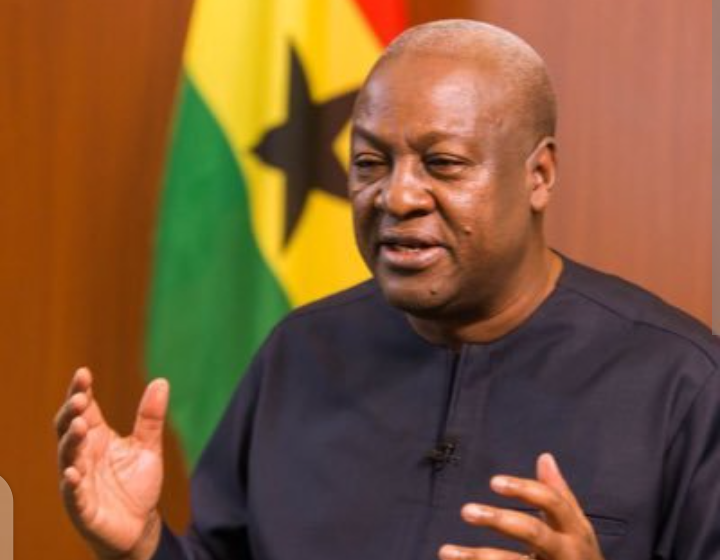John Mahama: Five things to know about Ghana’s president-elect

Photo credit: Twitter
Seasoned statesman, John Dramani Mahama, Ghana’s president-elect, is a dynamic leader with an interesting political career,a connoisseur of arts with a rich personal history that has shaped his influential leadership style and vision for the country. His re-election marks a significant moment in Ghana’s democratic journey.
Five things to know about him
A Son of the Savannah
Born on November 29, 1958, in Damongo, in Ghana’s Savannah Region, John Dramani Mahama hails from the Gonja ethnic group. His upbringing in a culturally diverse environment laid the foundation for his ability to engage with diverse communities across Ghana. His father, Emmanuel Adama Mahama, was a prominent politician and the first Regional Commissioner of the Northern Region, which influenced Mahama’s early exposure to governance and leadership.
Bayern Munich vs PSG: Head-to-head, prediction, other things to know
Islamic Scholar Muyideen Bello is dead: Top 10 things to know
Academic Excellence and Global Perspective
Mahama’s education spans local and international institutions. According to Daily trust, he attended Achimota School in Accra and Ghana Secondary School in Tamale for his Primary and Secondary School education respectively. He earned his first degree in History from the University of Ghana, Legon in 1981, and later pursued a postgraduate degree in Communication Studies in 1986 at the same institution. In 1988, his thirst for global exposure led him to the Institute of Social Sciences in Moscow, where he studied Social Psychology. This combination of historical, communicational, and social psychological knowledge has been pivotal in shaping his leadership and communication strategies.
A Versatile Political Journey
Mahama was once an Information, Culture and Research Officer at the embassy of Japan until 1995, when he moved to Ghana office of Plan International as Manager of International Relations, Sponsorship, Communication and Grants.
His political career began in 1996 when he was elected as a member of Parliament Parliament for the Bole- Bamboo constituency in 1997, under the National Democratic Congress (NDC), and was reelected in 2000 and 2004 according to Daily Trust. He subsequently served as Deputy Minister and later as Minister of Communications in 1998 and 2001 under the Rawlings administration, where he championed Ghana’s telecommunication expansion. His steady rise through the ranks led to his appointment as Vice President in 2009 under President John Atta Mills, and he assumed the presidency in 2012 following Mills’ untimely death.
Daily Trust reports that during the next round of election, Mahama was selected to be the flag bearer of his party, the NDC, in the country’s presidential election. He was declared winner of the December 2012 election with 50.7 percent, defeating his close rival, Nana Addo Dankwa Akufo-Addo of the New Patriot Party (NPP), who polled 47.74 percent.
Dissatisfied with the election results, Akufo-Addo filed a petition before the Supreme Court, citing election fraud. But in August 2013, Akufo’s suit was dismissed and Mahama’s victory upheld.
Mahama was later defeated in the December 2006 election by Akufo-Addo following heavy criticism labelled against him by his countrymen.
On 7th December, 2024, the former president Mahama makes a comeback as the current Ghana President – elect.
An Accomplished Author
In 2012, Mahama released his memoir, “My First Coup d’État: And Other True Stories from the Lost Decades of Africa.” The book provides an introspective account of his personal and political journey, interwoven with reflections on Ghana’s post-independence history. It has been lauded for its candid storytelling and has offered readers a rare glimpse into the complexities of African leadership
Champion of Infrastructure Development
Mahama’s presidency (2012–2016) was marked by a strong focus on infrastructure development. His administration spearheaded projects such as the expansion of the Tema Port, the construction of new hospitals and schools, and significant investments in energy projects, including the Atuabo Gas Plant. These initiatives aimed to modernize Ghana’s economy and address chronic energy challenges, though they were also criticized for contributing to the national debt.

